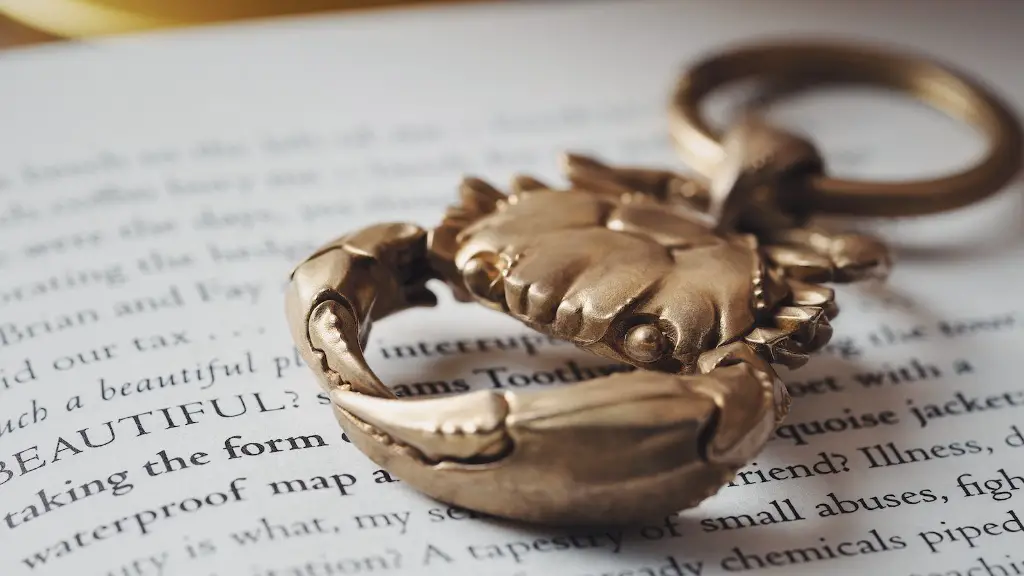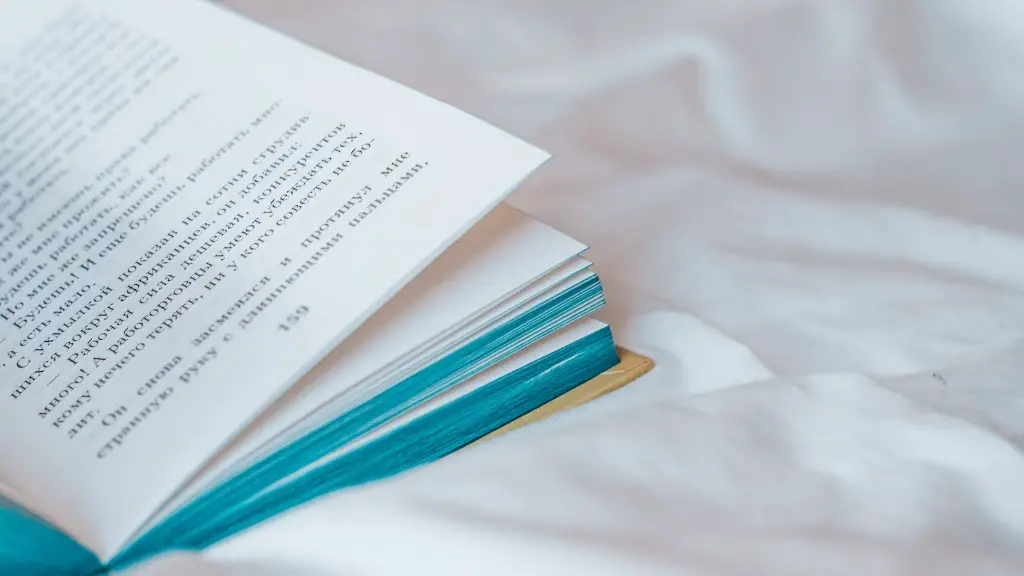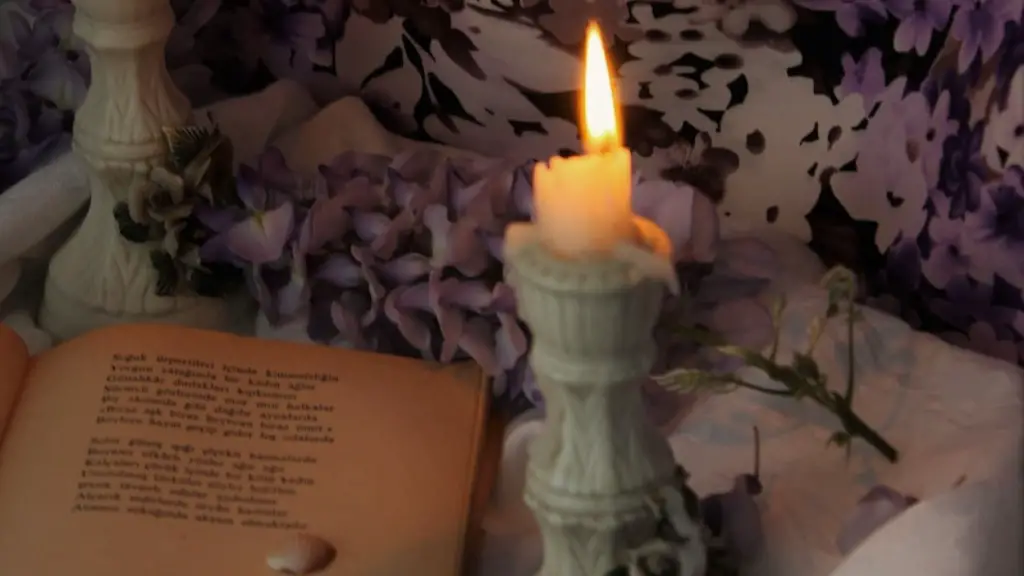It is impossible to deny the significance of poetry in the history of humanity. From Homer’s epic dramas to T.S. Eliot’s modernist essays, the impact of this genre of literature is undeniable. Poetry is commonly thought of thought of as beautiful, emotive language which captures the imaginations of readers and listeners, and provides a means of artistic expression. But in today’s world of digital media and constantly advancing technology, there are increasing questions as to whether poetry has become useless.
Although modern society may appear to have passed poetry by, there is still a place for this art form. Autobiographical poets such as Robert Frost, Sylvia Plath and William Butler Yeats are still commonly read today, and the works of Shakespeare are still studied in virtually every high school. Furthermore, there are still countless active poets around the world, and their work is still read and appreciated. Dr. Pippa-Jayne Tratt, Oxford University lecturer in English Literature and Poetry, believes that “poetry has a special place in our hearts and our culture that cannot be replaced by any other medium”.
One of the major advantages of poetry is that it can capture the emotions, moments and life experiences of a person in ways that no other medium can. Dr. Tratt further states that “poetry is a truly powerful means of conveying emotion and encapsulating experience. It is a very concentrated and intimate type of discourse that allows the reader or listener to become highly immersed in the thoughts and feelings of the writer”.
Modern society has provided poets with the means to reach a larger audience. For example, the advent of social networking websites and blogs allows poets to share their work with others like never before, and to receive instant feedback. This influx of reactions has helped to create stronger bonds between poets and their audiences, which is something that could not have happened before the rise of the internet.
Despite its relevance, absurdists still ask if poetry is useless in modern society. The argument is based on the fact that the most common type of poetry these days is that which is written “for the sake of writing”, and not necessarily with a larger purpose or intent in mind.Therefore, this type of poetry could be seen as “useless” in the sense that it is not serving any particular meaningful purpose.
Yet, there is a pragmatic case to be made in favor of poetry’s meaningfulness in society. For example, cognitive scientists suggest that poetry helps to improve thinking, strengthen memorization and encourage creativity. Furthermore, numerous studies have shown that poetry can also help to reduce stress levels, improve communication and help to build self-esteem.
Educational and Cultural Impact
Poetry has a wide-reaching cultural and educational impact. It not only serves as a way for individuals to express their views and beliefs, but also provides a common language for the sharing of ideas, perspectives and thoughts. Dr. Tratt has argued that teaching poetry in school “ helps to bridge some of the gaps in communication between cultures, as well as helping to foster better understanding between different ideologies and belief systems”.
For many, poetry has a therapeutic effect because it encourages individuals to slow down and process the world around them, and this can be a very beneficial skill. Indeed, there is growing evidence that people who are exposed to poetry are able to access higher level thinking and problem-solving skills, as well as being more open to viewing different perspectives.
The fact that there is still such a strong cultural and educational demand for poetry serves to prove that it is not a useless art form. Not only is poetry useful for its cultural value, but also to teach students about language and communication. Furthermore, for many poets, the craftsmanship of writing rhymes and creating works of art can be a great creative outlet and provide a sense of satisfaction and joy.
Poetry in Media
Poetry has also found a resurgence in the media, especially in forms such as hip-hop and rap. Poetic techniques such as alliteration, metaphor and imagery are combined with rhythm and beat to create captivating pieces of work. For example, Kanye West’s critically acclaimed record ‘College Dropout’ was praised for its tight rhymes and thought-provoking lyrics, and was even studied and analysed by college students.
Similarly, rap and hip-hop have been used to address various timely societal issues such as racism, poverty and sexism in a very direct and powerful manner. Consequently, poetry in the media is often used to create awareness and start conversations in a way that other forms of media are simply unable to do.
This demonstrates that poetry is not just for entertainment or for artistic purposes, but can also be used to tackle real-life dilemmas with creativity and nuance. As Dr. Tratt has said, “ It is perfectly possible to use poetry to gain a deeper understanding of the world around us, and how we interact with it.”
Political Engagement
In recent years, poetry has been used as a powerful tool for political engagement. Poets like W.E.B Du Bois, T.S Eliot, Langston Hughes and Maya Angelou have used their works to draw attention to issues of social and political injustice. The power of language and symbolism employed by these poets has resulted in their work achieving near iconic status, and inspiring change.
In more modern times, however, younger poets such as Warsan Shire in Britain, and Lemon Anderson in the US, have used their work to provide a platform for issues such as sexism, racism, and immigration. In particular, Shire’s poem “For Women Who Are Difficult to Love” has been praised for its exposure of the double standards that women still face in contemporary society.
The use of poetry to engage with social issues is something that is uniquely powerful, and arguably more efficient than other forms of communication. Dr. Tratt explains “Poetry gives a voice to those who may feel voiceless in society, and it enables people to express themselves in ways that are more powerful than simply words”.
Influences of Poetry
Finally, there is a place for poetry in the modern world because of the many ways that it can positively influence those who read it. For instance, the power of self-expression that poetry can provide is invaluable, and helps to build resilience, self-confidence and motivation in individuals. Furthermore, reading poetry can be a highly enjoyable and therapeutic experience. According to Dr. Tratt, “studying poetry can help to improve empathy, as it allows us to occupy the perspectives of others, and to take into account their feelings and beliefs”.
In addition, many poets have captured the beauty of nature in a way that no other medium can. From William Wordsworth’s awe-inspiring sonnets on the beauty of nature, to Langston Hughes’ vivid depictions of a cityscape, poetry continues to bring alive, moving stories and images to the reader.
So, it can be concluded that poetry is definitely not an obsolete art form. Its ability to capture the complexities and nuances of the human condition, to engage with political issues, and to bring beauty to our lives is something that needs to be protected and nurtured. Ultimately, poetry is not useless but is still very much relevant in today’s world.
Effectiveness of Poetry Therapy
In recent years, poetry has also been used as a therapeutic tool to help those suffering from mental health issues, such as depression and anxiety. Poetry therapy involves the use of poetry as a way of expressing emotions, processing experience and aiding cognitive and emotional regulation.
A study conducted by the Poetry Therapy Institute found that 46% of study participants reported an improvement in their mental health after engaging in poetry therapy. The research also revealed that participants found the therapy to be a useful tool for addressing difficult emotions and experiences. Likewise, many therapists are now using poetry therapy as a way of helping those who are battling psychological and emotional trauma.
Furthermore, there is a growing body of evidence that suggests that poetry can improve physical health as well. Studies by the U.K.’s Royal Society of Arts have shown that regular reading and writing of poetry can reduce stress levels significantly, while also increasing positive moods. As a result, poetry is increasingly being used in hospitals and other healthcare settings to help patients to cope with physical and mental illness.
Effects of Poetry Music
Moreover, the influence of poetry can be found in the realm of music. Many popular songs today contain poetic elements, whether in their lyrical content or the sounds and rhymes used. Indeed, even classical music composers, such as Mozart, Beethoven and Bach, used poetic techniques in their works.
Furthermore, many musical artists have used poetry to communicate intangible feelings, thoughts, and beliefs in ways that are far more powerful than other forms of communication. Take for example Bob Dylan, whose song “Blowin’ in the Wind” has become a powerful modern-day anthem to peace. Similarly, the band U2 have used many of their songs to tackle pressing political and social issues.
This serves to show that poetry is not an antiquated form of communication, but rather an ever-evolving and ever-relevant medium. It is a powerful way to express emotions, ideologies, and beliefs in ways that are often far more effective than conventional terms. In this way, it is clear that poetry is anything but useless.
Further Applications of Poetry
Poetry has also been used as a form of social commentary and activism. Poets such as Audre Lord and Adrienne Rich used their works to challenge ideas of patriarchy and oppression, while others, such as Langston Hughes, established themselves as chroniclers of the African-American urban experience. Furthermore, many poets are now using their work to engage with modern-day issues such as LGBTQ rights, climate change, and inequality.
This further demonstrates that poetry is still a powerful tool for stirring debate and inciting action. Indeed, the fact that so many poets are still writing today, and that their work continues to be read and appreciated by many, proves that it is anything but useless.
The Necessity of Poetry
In conclusion, poetry is a vital part of our culture, and as such, it should be cherished and celebrated. It is undeniable that poetry has an important place in our world; it serves as an expression of our emotions, a way for us to process life experiences, and a means of engagement with difficult and relevant social issues.
Furthermore, many of the benefits of reading, studying and writing poetry are often overlooked. From improved thinking and writing skills, to increased emotional resilience and empathy, poetry offers a wide range of psychological and emotional benefits.
Consequently, it can be argued that poetry is far from useless in today’s world. Its ability to capture and convey the subtleties and complexities of human experience, to inspire and motivate individuals, and to open our eyes to the world around us is something that should be cherished and celebrated.





